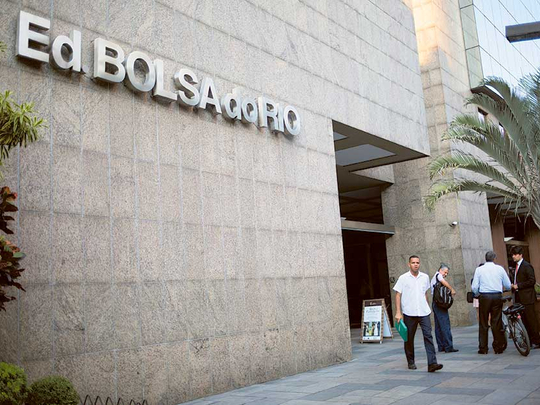
Dubai: Fund managers are urging investors to look at emerging equities and bonds, which are providing returns comparable to developed markets.
Emerging-market stocks are gaining as expectations that the Federal Reserve will refrain from raising interest rates this year, and better-than-estimated economic data from the US, stoke risk appetite. Conversely, the developed markets, especially the US equities, have been on a record breaking spree, extending a seventh year of gains, and fund managers feel that the rally may run out of steam.
“We see attractive opportunities in emerging markets where valuation discounts compared to developed market peers are reaching historical extremes,” Norman Villamin – Chief Investment Officer Private Banking, Union Bancaire Privee (UBP) told Gulf News in an email.
UBP has expanded its focus to Latin America and Eastern Europe from the previous Asian economies.
“We are increasingly seeing policy makers in emerging markets, which had been tightening policy in recent years, shifting to a more accommodative stance to support their domestic economies,” Villamin said.
The optimism for continued central bank stimulus around the world helped equities post the best first-half performance since 2009 relative to advanced nation shares after three years of underperformance. A gauge of expected volatility in developing nation equities fell to the lowest level since July 2015.
“The headwinds that have plagued emerging markets appear to be increasingly well priced in, especially relative to the rising risks in developed markets. Large valuation discounts are now reaching historical extremes, despite the fact that emerging market corporates are generating returns on equity that are now comparable to those generated by their western counterparts,” he added.
But due to the unattractive risk reward ratio in developed equities, UBP says it has oriented its portfolios towards value and low-volatility strategies in US equities, and towards dividend, volatility carry and value strategies in European equities.
UBP is looking to a defensive sector bias in developed equities to support returns, with a focus on consumer staples and health care. They are also looking to diversify its equity exposure by looking at minimum-variance strategies to mitigate the impact of the expected periodic spikes in volatility.
“We have also increased the use of hedge funds to mitigate equity volatility. We expect macro, long-short and relative-value strategies to offer attractive risk-reward potential for investors,” Villamin said.
Fixed income space
Fund managers are also urging investors to look for opportunities in fixed income space.
“We remain overweight euro-denominated high yield credit, expecting positive returns over the next few months. We would likely grow even more positive if spreads were to widen by around 100 basis points from here, given the easing stance of the European Central Bank,” said Mark Haefele, Global Chief Investment Officer at UBS in a report.
ECB has extended its quantitative easing programme to March 2017, and with expectation of another six-month extension to September 2017.
“We see high-quality, USD sovereign and corporate emerging market debt as still attractive in terms of capturing yield, as spreads remain elevated in spite of the stability we expect in emerging economies in coming quarters,” Villamin said.
Equity markets in the West generally undercompensate investors for modest earnings prospects, unlike many credit markets, which over compensate investors for credit risks.












